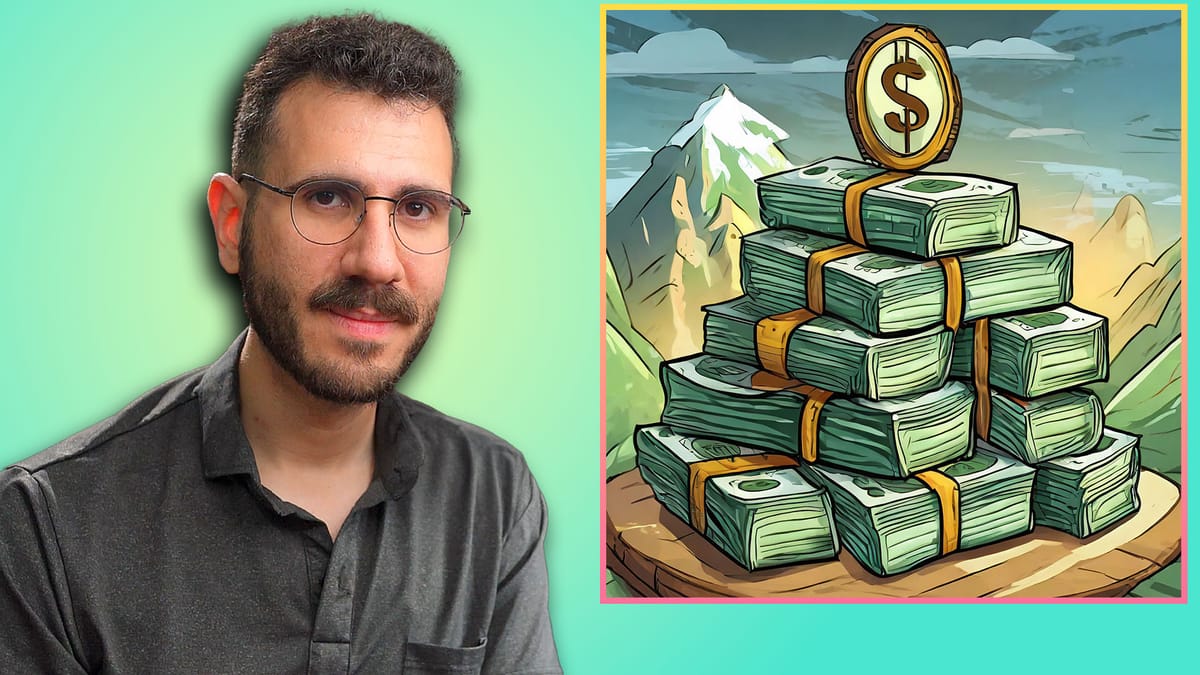How much to charge for video editing. | Every Pricing Strategy Explained

You've got the video editing chops, now it's time to get paid by turning your talent into a business! But figuring out the right way to charge clients can be overwhelming. Let's explore the best methods together.
I'll share everything I know to help you land on the perfect pricing strategy.
Pricing Structures: Your Options Explained
Here's a breakdown of the most common (and a few less common) ways to charge for your video editing work:
- Hourly: The Simplicity Trap At first, this seems easiest – charge for the time spent editing. But there are downsides. It punishes you for being efficient; an amazing video edited quickly earns you less than a slower editor. Clients can also get anxious seeing big invoices for long hours, even if the outcome is great.
- Per Video: The Sweet Spot This is where most editors should focus. Think about:
- Minimum Wage as a Base: What do you need to live comfortably? Start by multiplying your state's minimum wage by three. Can a 15-minute video realistically be edited in the hours that payrate covers?
- Experience Boost: Add to your base rate as you gain experience. Check salary averages online like at Glassdoor for reference. But remember, those rates are for corporate 9-5 jobs. You have to charge more than that because you're freelancing.
- Value Prop: What makes your editing stand out? If the client will benefit greatly, they'll pay more.
- Per Project: Bundle multiple videos for a set fee, invoicing once at the project's end. This works well with experience, as you have better instincts about how long complicated projects take.
- Less Common (But Viable) Options:
- Day Rate: Charge for full days of your time, often favored by agencies or movie productions.
- Per Finished Minute: Clients pay based solely on the video's final length. Can pressure them to make shorter videos.
- Retainer/Subscription: Monthly fee for a set number of videos. Rare for small YouTubers, but some dedicated channels love the predictability.

The Magic Sliders: Experience & Value-Based Pricing
Your base method isn't the whole story. These two factors heavily influence how much you should charge:
- Years of Experience: It's simple – more skill deserves more compensation. As you gain experience, don't be afraid to up your prices. Clients understand paying for expertise!
- Value-Based Pricing: If a client's channel is booming thanks to your work, they're getting way more than just a video. You have leverage to charge accordingly. How?
- Ask About Their Budget: Don't be shy about finding out what they're willing to spend. You might be surprised! You could be charging $300 per video, but then a client says they typically pay video editors $1000 per video. If you said $300 first, you would've lost out on $700... per video.
- Test the Waters: Start with a number slightly higher than your standard rate and gauge their reaction. Negotiation is a normal business practice.
Bonus Pro Tips
- Taxes are Your Responsibility: Freelance means no automatic deductions. Aim to set aside around 30% of every payment for tax time.
- Always set limitations: Always set limitations no matter what pricing strategy you use. This includes putting a limitation on how many subjective edit requests a client gets. I typically allow 10 per video. Another limitation can be how many videos (for per project or monthly subscription based pricing). Just because they're paying one amount doesn't be they get unlimited videos. It'll be too hard on you.
- Clear Communication is Key: Openly discussing the client's budget and expectations early on makes everyone's life easier. Simply ask them their budget.
- Incremental Increases: Each new client is an opportunity to nudge your rates higher. You deserve to make more as you gain experience!
The Bottom Line
Earning good money as a video editor is about charging for the outcome you provide, not just the hours spent at your computer. Find a structure that rewards your skills, and don't be afraid to experiment to find the sweet spot!
Your Turn!
Tell me in the comments how you currently charge for your video editing services. Have you tried any unique pricing strategies?




